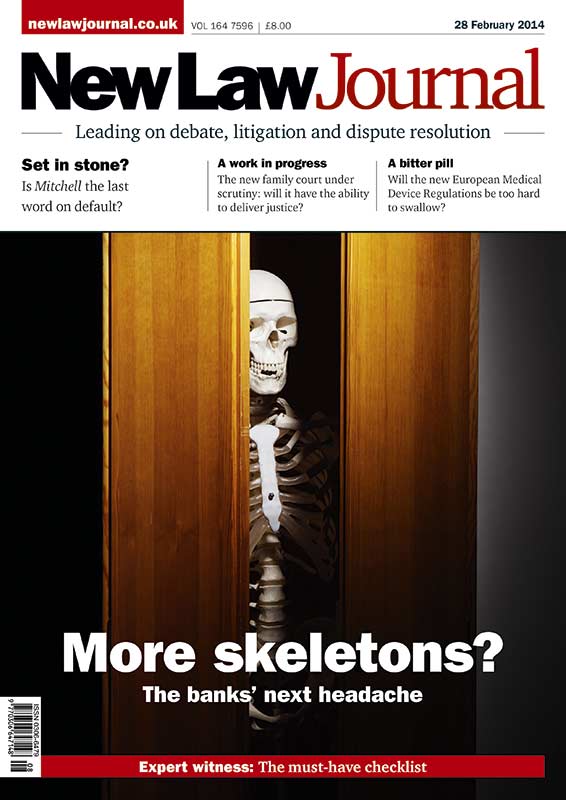
The banks’ imposition of business support measures on small to medium-sized business have gone awry, a banking lawyer has warned.
In an exclusive series David Burrows puts the new family court under scrutiny & assesses its ability to deliver justice
What impact will the new European Medical Device Regulations have on UK medicine, asks Sarah Moore
Will proposed new legislation improve consumer rights? Karen Clubb reports
Alison Padfield considers the limits on the freedom to choose a lawyer
R (on the application of Hiri) v Secretary of State for the Home Department [2014] EWHC 254 (Admin), [2014] All ER (D) 165 (Feb)
British Telecommunicatons plc v Office of Communications [2014] EWCA Civ 133, [2014] All ER (D) 158 (Feb)
R (on the application of Cornwall Council) v Secretary of State for Health and others [2014] EWCA Civ 12, [2014] All ER (D) 170 (Feb)
Wall v Mutuelle de Poitiers Assurances [2014] EWCA Civ 138, [2014] All ER (D) 178 (Feb)
Softhouse Consulting Ltd v Revenue and Customs Commissioners [2014] All ER (D) 224 (Feb)
MOVERS & SHAKERS

NLJ Career Profile: Ken Fowlie, Stowe Family Law
Ken Fowlie, chairman of Stowe Family Law, reflects on more than 30 years in legal services after ‘falling into law’

Jackson Lees Group—Jannina Barker, Laura Beattie & Catherine McCrindle
Firm promotes senior associate and team leader as wills, trusts and probate team expands

Asserson—Michael Francos-Downs
Manchester real estate finance practice welcomes legal director







